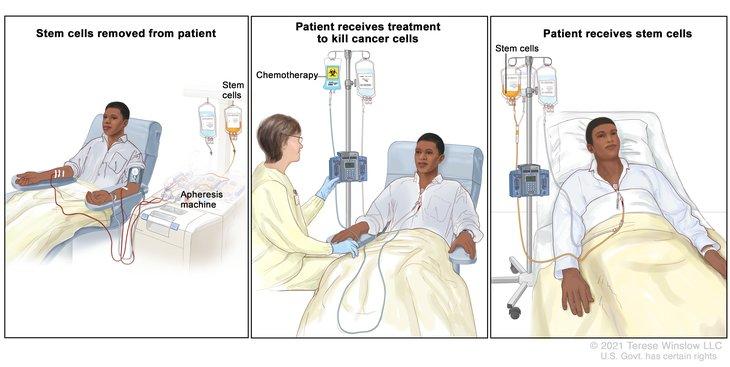Donor IFNL4-null Genotype Associated with Improved Survival in Hematopoietic Stem Cell Transplant Recipients with Acute Leukemia
Among patients with acute leukemia, receiving a hematopoietic stem cell transplant (HSCT) from donors who do not express IFNL4 (IFNL4-null) is associated with reduced risk of death from non-relapse-related causes. These findings were published in the journal Lancet Haematology, October 2020.
While HSCT can be an effective treatment for leukemia and other severe blood diseases, risk of death from serious complications, including infections, graft-versus-host disease, and organ failure, remain high. Finding ways to reduce this risk is imperative to improve survival after HSCT. Prior studies on IFNL4 in viral infections or solid organ transplant may offer some insight; findings suggest that individuals with IFNL4-null genotype are less likely to experience reactivation of certain viral infections compared to those who can produce the IFNL4 protein.
In this new study, Shahinaz Gadalla, M.D., Ph.D., Earl Stadtman investigator in the Clinical Genetics Branch, and colleagues explored the possible role of the IFNL4 genotype in patient outcomes after HSCT in more than 1500 recipient-donor pairs between 2000 to 2008. They used data from the Center for International Blood and Marrow Transplant Research (CIBMTR) repository and database. Study authors found that donor, but not recipient, IFNL4 genotype was associated with patient risk of non-relapse mortality.
These findings suggest the clinical usefulness of screening HSCT donors for IFNL4 genotype to improve patient survival. Future prospective studies are needed to validate these results.
Reference:
Gadalla SM et al. Association of donor IFNL4 genotype and non-relapse mortality after unrelated donor myeloablative haematopoietic stem-cell transplantation for acute leukaemia: a retrospective cohort study. Lancet Haematology. October 2020. DOI: 10.1016/S2352-3026(20)30294-5 [Epub ahead of print]
